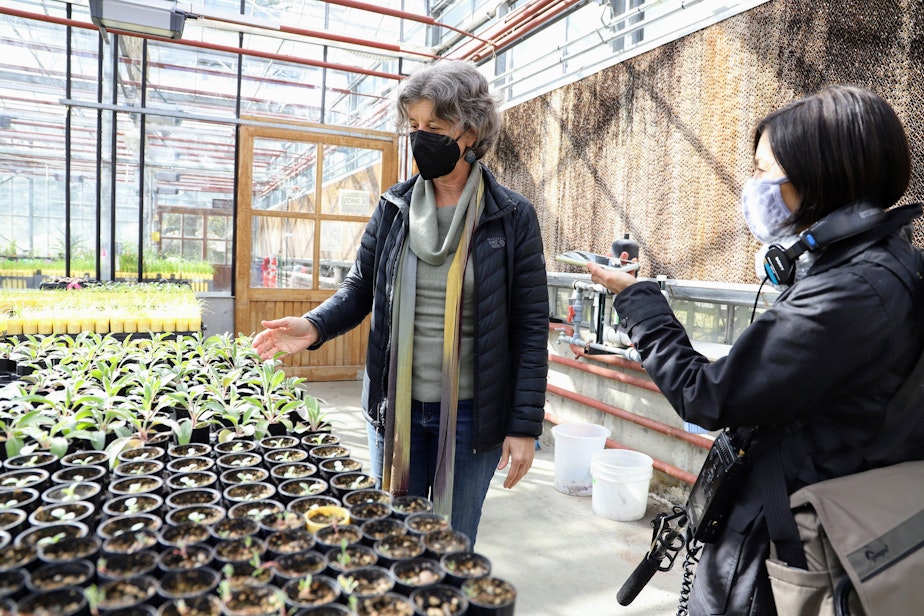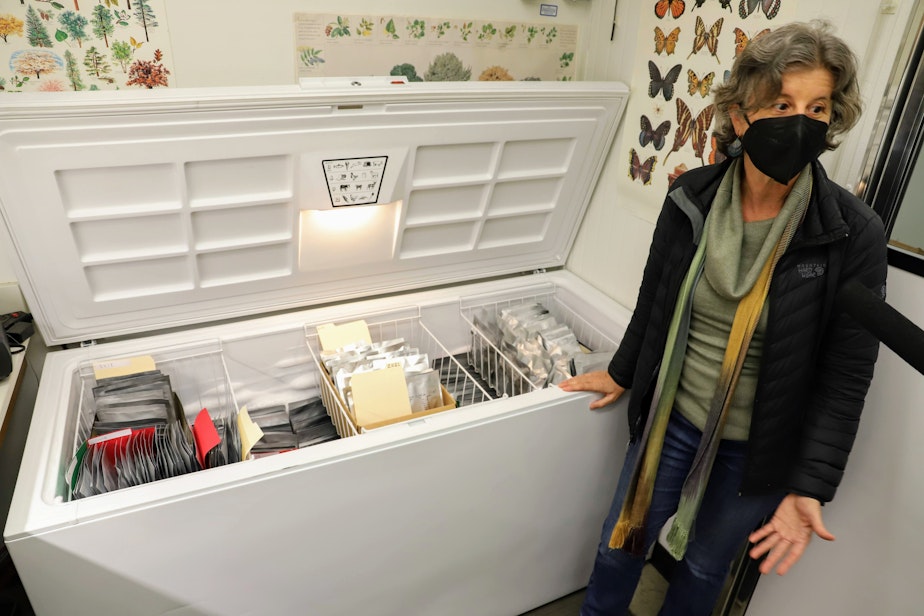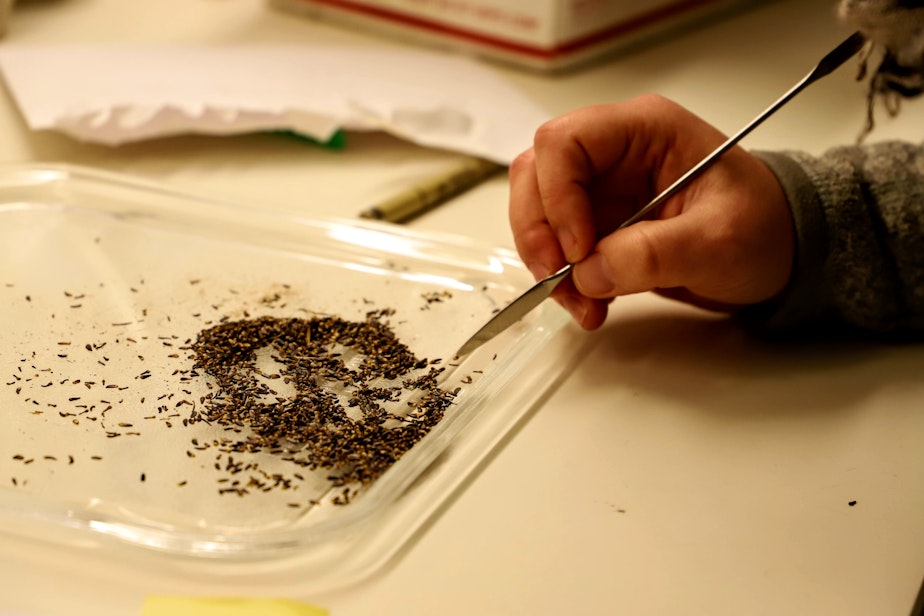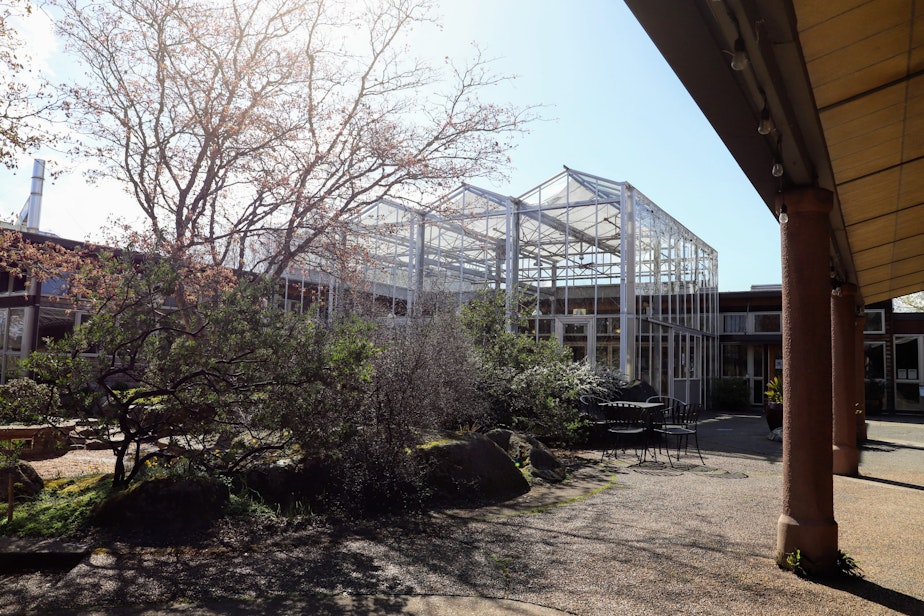Unlock the secrets of Seattle's mysterious seed vault: Travel For Good

Seattle is home to the largest seed collection in the Pacific Northwest — the Miller Seed Vault. It’s tucked away in a small building, surrounded by public gardens, on the edge of the University of Washington campus.
Visiting the seed vault is like walking into a restaurant freezer. You step into the cold air and hear the hum of a cooling system.
“It’s kind of a Noah’s Ark,” says Wendy Gibble, who manages the Washington Rare Plant Care and Conservation program.
The vault, which is part of the program, holds seeds from more than 100 species of rare native plants from across Washington state. The seeds are used for research and restoration work.
“For the rarest of rare species, we try to make different collections from different populations all over the state,” she explained. “That’s how we can try to get the best genetic representation as we can for a species.”

Sponsored
In this climate-controlled vault, seeds are cleaned, dried, and sorted before they’re sealed in foil-laminated bags for storage. As a backup, half of the samples are sent to the National Laboratory for Genetic Resources Preservation in Fort Collins, Colorado. That facility is part of the U.S. Department of Agriculture and the largest seed bank in the country.
Sponsored
While the UW program focuses on wild, endangered plants, the National Lab’s collection includes seeds for food crops.
Having a diverse plant gene pool is critical for the future of our food systems, according to Stephanie Greene, seed curator at the National Lab.

“Plant breeders who are constantly improving the food we eat turn to these collections because they’re so diverse that they have those traits that they’re looking for,” she explained.
Sponsored
“Particularly now with climate change, there’s a real need to develop crops that are adapted to climate change.”
Sponsored
Back in Seattle, the Miller Seed Vault works with different partners around the state of Washington to restore threatened or endangered species and rebuild fragile ecosystems. The process is akin to fixing a piece of broken technology, said Gibble.
“If you have a complex piece of machinery, and you pull out one bolt, what starts jiggling loose?”
Visitors to the Miller Seed Vault will learn about some of the region’s endangered plants and will see how seeds are preserved and used for future restoration projects. You might even see some of the seeds grown in the greenhouse.
During our visit, Gibble showed us trays of young showy stickseed and Umtanum Desert buckwheat that will be planted in eastern Washington in the fall.
Sponsored
Visits to the Miller Seed Vault are free. Click here to schedule an appointment.

This piece is from our eight-part Travel For Good series, spotlighting tourism ideas across the state that teach about our fragile wonders and how we can help protect them. Check out more stories from the series here.
Want to share your social good travel ideas with us? Send an email to zhamid@kuow.org. We might feature your submission in future stories!




